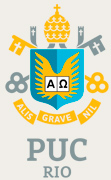Vol. 38, N° 1, Jan/Apr, 2016
Neoliberal crisis, social demands, and foreign policy in Kirchnerist Argentina
Anabella Busso

Abstract
Traditionally, Argentine foreign policy has been regarded as the domain of the executive, and a laudable expression of realism. Perspectives that include domestic variables as a source of foreign policy have only emerged relatively recently, and have only assumed importance in a redemocratised Argentina in the course of its recurrent economic and political crises in the late 20th and early 21st century. This dynamic was particularly marked during and after the crisis of 2001. As a result, Kirchnerist foreign policy was affected by a range of complex domestic factors. The aim of this article is to show how those factors drove the governments of Néstor and Cristina Kirchner, without abandoning executive primacy, to prioritise a neodevelopmental economic model, and combine them with an autonomous foreign policy which they believed to be the only way to meet the social demands of those affected by the neoliberal crisis.
Keywords: Foreign Policy; Public Policy; Crisis; Domestic Constraints; Kirchnerism.
DOWNLOAD:
Neoliberal crisis, social demands, and foreign policy in Kirchnerist Argentina
 Instituto de Relações Internacionais
Instituto de Relações InternacionaisRua Marquês de São Vicente, 225 - Vila dos Diretórios, Casa 20, Gávea - Rio de Janeiro - RJ, Brasil
Tel/Fax: +55 21 3527-1557 3527-1558 3527-1560

